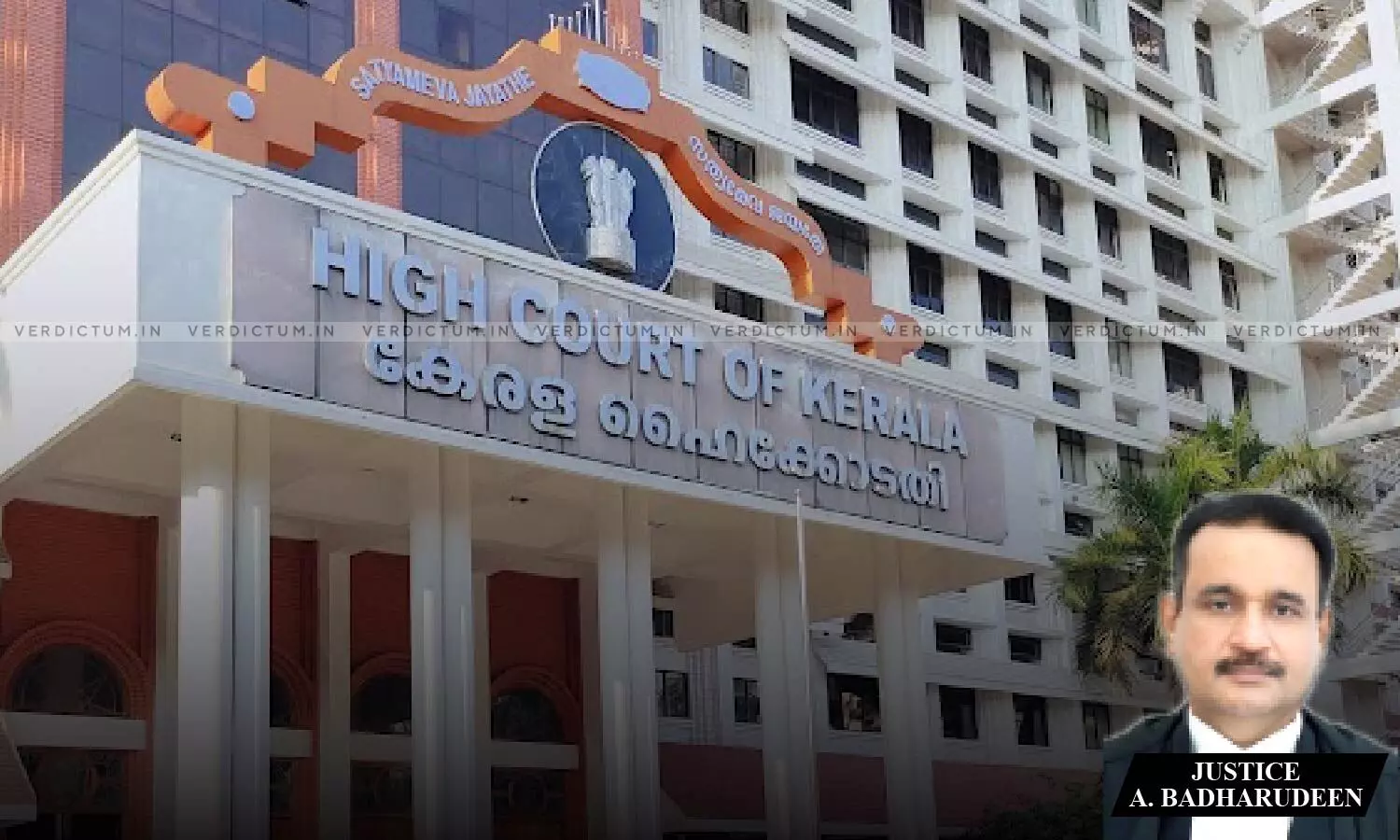
Divorced Woman Living In Shared Household Cannot Be Evicted Without Following Procedure Established By Law: Kerala HC
 |
|The Kerala High Court has reaffirmed that a divorced woman, though not entitled to claim a right of residence in a shared household, cannot be evicted except through lawful procedures established by law.
The Single-Judge Bench of Justice A. Badharudeen emphasized that while a divorced woman does not possess a legal entitlement to the shared household, if she continues to reside there during or after divorce, she can only be removed in accordance with the due process of law.
"Therefore, it is held that a divorced woman cannot claim right of residence in a shared household. But divorced women staying in a shared household at the time of divorce or after divorce shall not be evicted or excluded from the shared household or any part of it by the respondent save in accordance with the procedure established by law," the Court said.
The case stemmed from an Appeal filed by a wife against an order issued by a Magistrate Court under the Domestic Violence (DV) Act. The Magistrate had directed the wife to vacate the shared household within a month, following a divorce granted to the husband on grounds of desertion. The wife contested this eviction order, arguing that she and their minor child were entitled to reside in the shared household until lawfully evicted.
The husband, relying on the absence of any shared household during the divorce proceedings, had argued that there was no legal basis for the wife's claim to remain in the premises. However, the High Court examined the precedent set by the Supreme Court in the case of Prabha Tyagi v. Kamlesh Devi (2022), which established that even if a woman did not reside in the shared household, she could claim residence rights under the Domestic Violence Act.
The Single-Judge Bench critically analyzed the Supreme Court's decision, noting that it did not establish a precedent whereby a divorced woman could automatically claim residence rights based solely on a prior domestic relationship. It clarified that while the Domestic Violence Act provides protection to women in domestic relationships, including former wives, it does not confer an absolute right to reside in a shared household post-divorce. It held that a divorced woman staying in a shared household, either at the time of divorce or thereafter, can only be evicted through legal proceedings initiated by the husband.
The Court emphasized that even a divorced woman occupying a shared household without legal entitlement cannot be ousted abruptly. The Court also drew parallels to the treatment of trespassers, asserting that lawful procedures must be adhered to in any eviction scenario.
By setting aside the Magistrate's order to vacate the premises, the Court ordered, "In the result, this petition is allowed permitting the petitioner and minor to continue their residence therein subject to the final decision in M.C.No.59/2023, pending before the Judicial Magistrate of First Class-II, Palakkad. It is specifically made clear that the respondent is at liberty to evict the petitioner from the so called shared household as per law and mere pendency of M.C.No.59/2023 shall not be a bar for doing the same."
Cause Title: Jayasree v. Indrapalan and Another [Neutral Citation: 2024: KER: 45244]
Appearance:-
Petitioner: Advocates Rajesh Sivaramankutty, Arul Muralidharan
Respondent: Advocates Varghese C. Kuriakose, Amritha J., M. P. Prasanth
Click here to read/download the Order